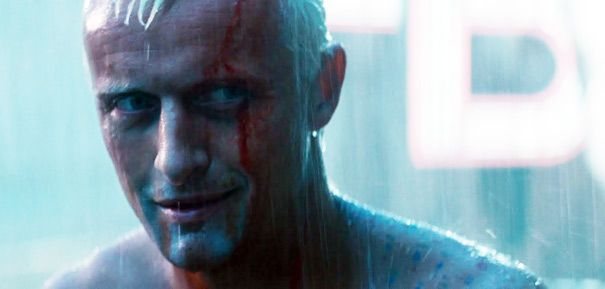A huge, cock-shaped space ship floats above a planet, ready to spit its seed, an exploration pod, to germinate (colonise) an as-yet empty, virgin planet. A warning in advance here: There are more than one Alien Covenant spoilers within.
The Alien franchise has never been about subtlety. The Alien Covenant rating you get when you search Alien Covenant Rotten Tomatoes will tell you that much.
Huge, mickey shaped creatures with penetrating penis-tongues scampering through pipes. Giant crab-like things plunging tubes into people. Inseminations, eggs, we could go on and on here. Fried might suggest young Ridley wasn't getting quite enough action when he was a young man and maybe now he's returned to the series, it's happening again.
There's a different feeling this time, though. As with Prometheus, the android, David, is by far the most interesting character. In the very first scene David, who selected his name from Michelangelo's statue, is established as coming from a very masculine environment. Sterile, cold, white and dead. We're shown a room where he is being addressed by the man who calls himself his father, Peter Weyland. There are some pretty grand themes thrown around. Where does humanity come from, mortality, legacy, not the kind of thing you'd usually shoot the shit with your dad about over a beer. They finish up with a disappointingly sterile recital of Wagner, according to his father. It all takes place looking out upon rolling valleys and mountains. A beautiful, highland landscape, from a dead, sterile interior. Weyland has created life, insofar as he sees it. David can think for himself. The Michelangelo reference isn't too far off.
And the fact is, most of the movie is about David from that point. David or Walter, who's the much later version deployed on the good ship Covenant. They meet, they play flute together. They even flirt during it. Try watching this in a cinema full of hormonal 6th years on a school trip when David announces to Walter 'I'll handle the fingering'. The point of the movie is that David considers himself an evolution of humanity. "Humans," he announces, "are not worthy of their creation."
Now, does this remind you of anyone?
By now, I'm guessing you realise this isn't a straight Alien Covenant Review. Ridley Scott has already announced that Alien and Bladerunner exist in the same universe. He even hid it in an Easter Egg in the Prometheus DVD / Blu-Ray.
This dictation from Peter Weyland definitely refers to Eldon Tyrell, CEO of the Tyrell Corporation, the company that produced the replicants from the Bladerunner series. (Bladerunner fans will pick up on the clues in there). Either way, the direction the Alien franchise has gone is veering pretty close to tying together the two themes. The traditional Alien theme, one of feminine biology, birth, gestation, procreation and the natural, and the Bladerunner theme, at what point do we declare something is alive.
Only Ridley's gone and tied up one other element. Sex.
If the female/nature theme of Alien has been dominant so far, these last two movies we're seeing the male element introduced. The male, in both Alien Covenant and Prometheus, is desperately vain, terrified and impotent. He's terrified of death but more than that, envious of the capacity to create life. So he created it. David is self aware. Critical of his creators. He's alive in the way replicants are alive.
For the Alien films now, the feminine is natural creation, the masculine is envious technological creation. It's an old idea.
What this film brings us is Nature being technologically interfered with, fucked up, by the masculine. The xenomorphs, it turns out, have been genetically engineered by David. Man's foray into feminine nature results in actual monsters. This isn't a new theme for Scott. 1492 Conquest of Paradise portrayed the settlers of the New World as corrupting and toxic to what was literally declared paradise in the film's title.
The film's lead, Katherine Waterson, probably the most solid performer in the whole Alien Covenant cast, has her husband taken from her in the very first scenes. He's killed in one of those synthetic wombs they hyper-sleep in during long voyages. It's a bizarre scene, symbolically reminiscent almost of a miscarriage, and the grief which sweeps the crew is only felt worse because the effervescent energy of mountain climbing James Franco has been replaced now by the grim, uneasy features of Billy Crudup. Crudup's character is portrayed as weak, indecisive and impetuous. He's a man of faith in a franchise where it's been proven God is an astronaut.
The franchise is the whole thing here you see. Maybe a larger thing, now, than a place to work out one's hangups about procreation and male/female biological dynamic. It's hard to forget David and Walter are also walking around in a universe where replicants have or will be hunted down for trying to live longer than their prescribed duration. It's also hard to forget there are Predators in this universe. Who will come to be very thankful to David for providing them with trophies. The Alien Covenant plot seems to come to about this much. The theme extends a great deal farther than that, though.
In a recent online article, it was revealed that Alan 'Dutch' Schaefer, Arnold Schwarchenegger's character who finally killed the Predator in the original movie, was used as the template for the original Terminator by Cyberdyne systems.









